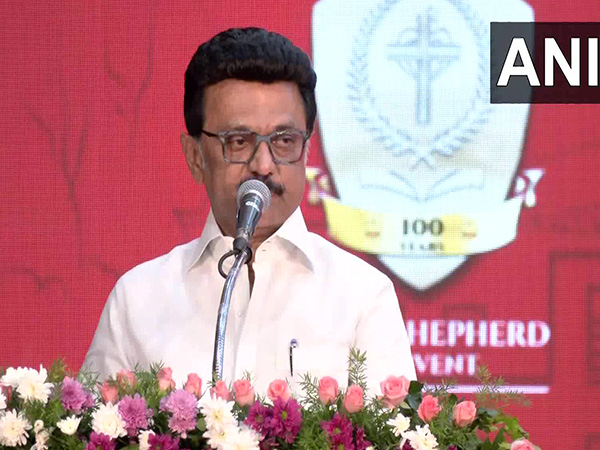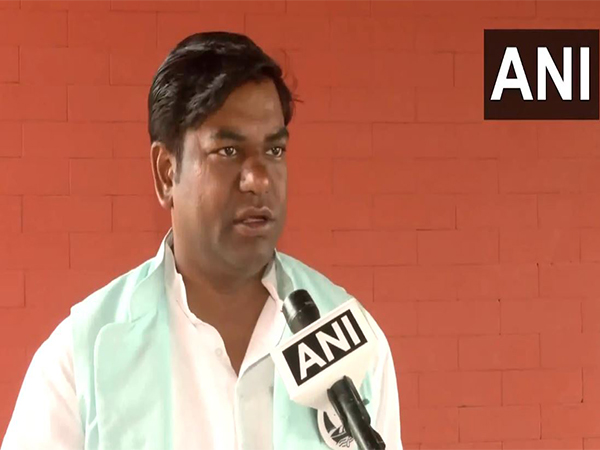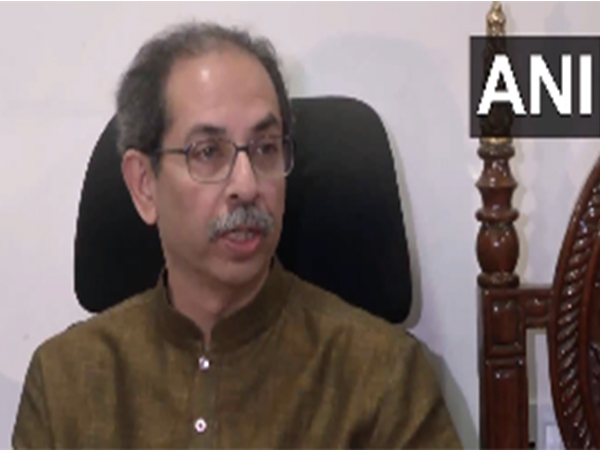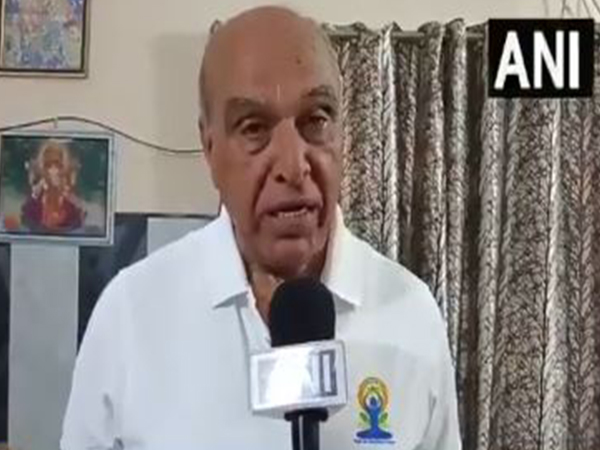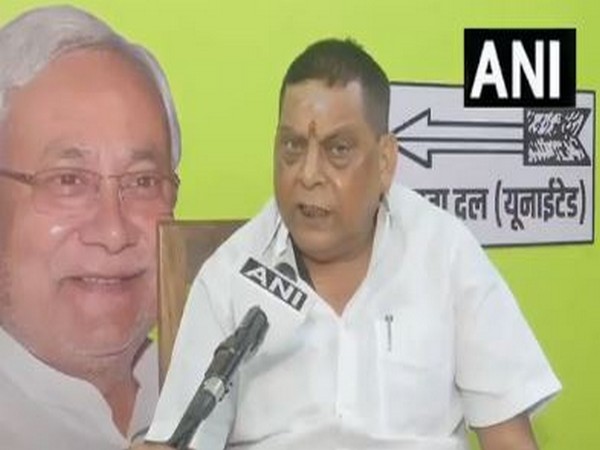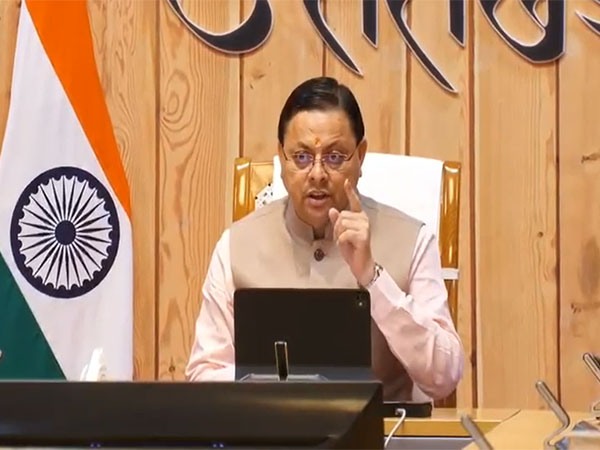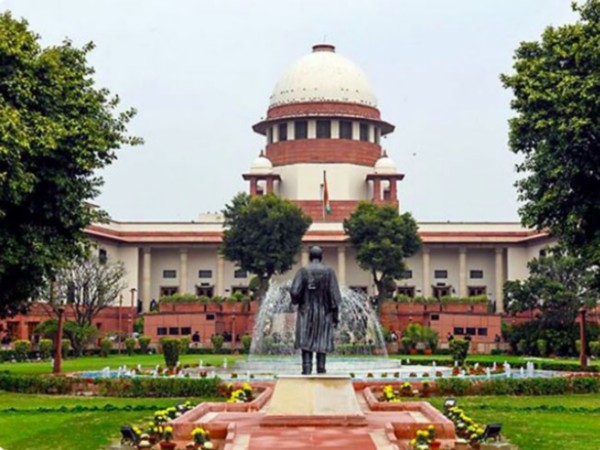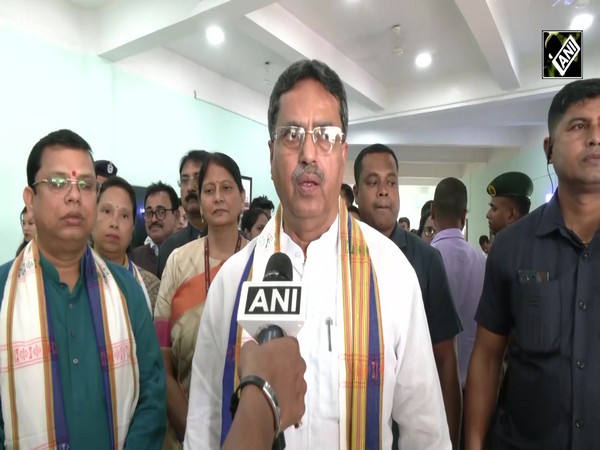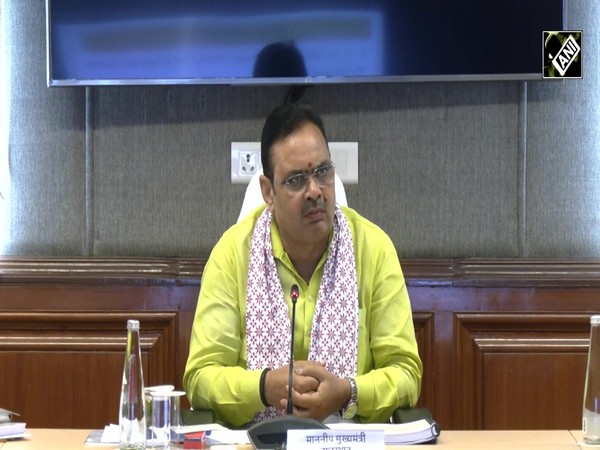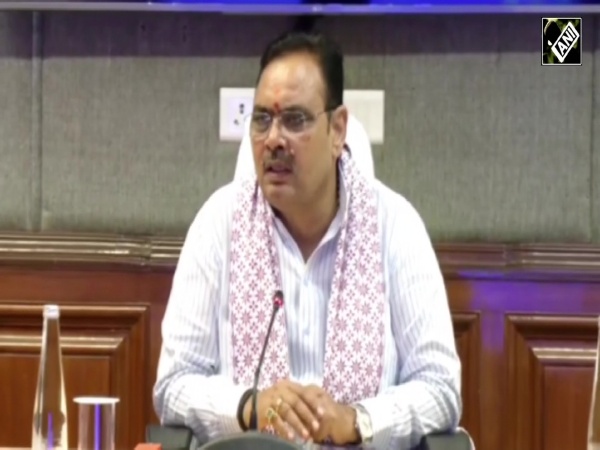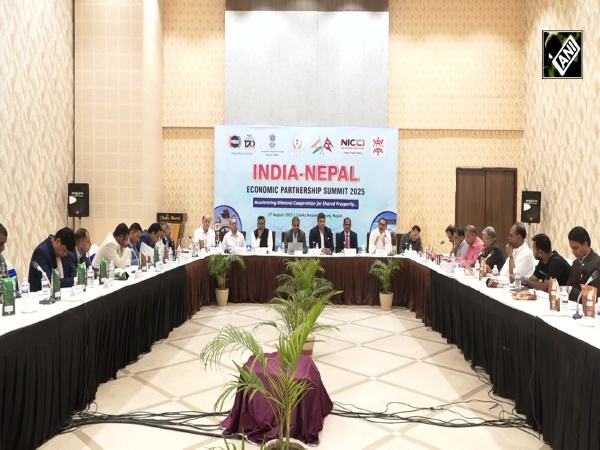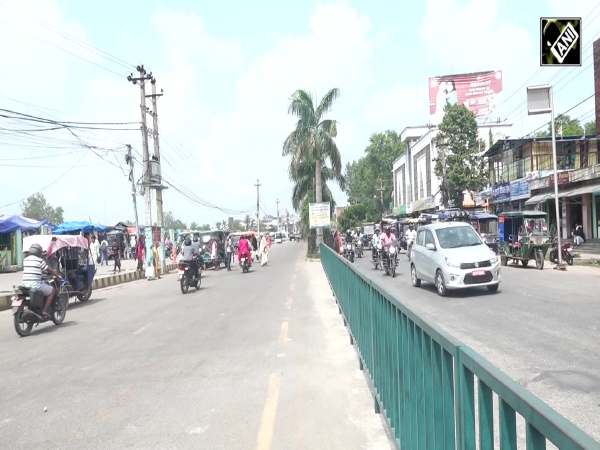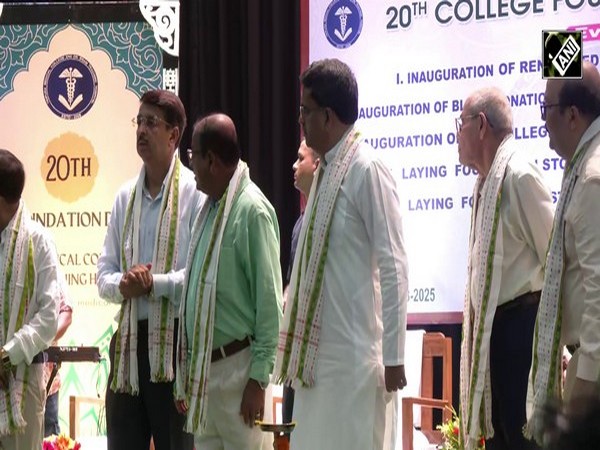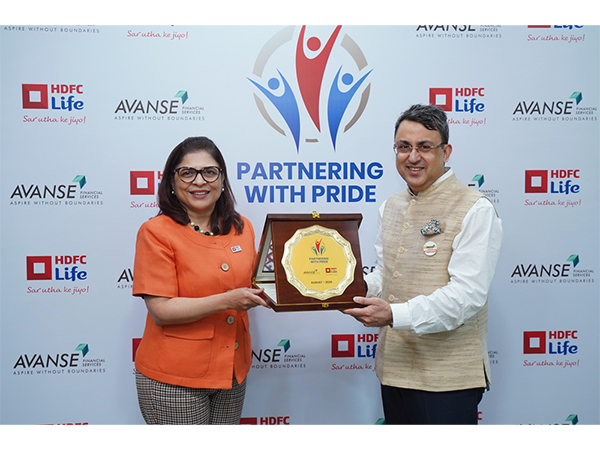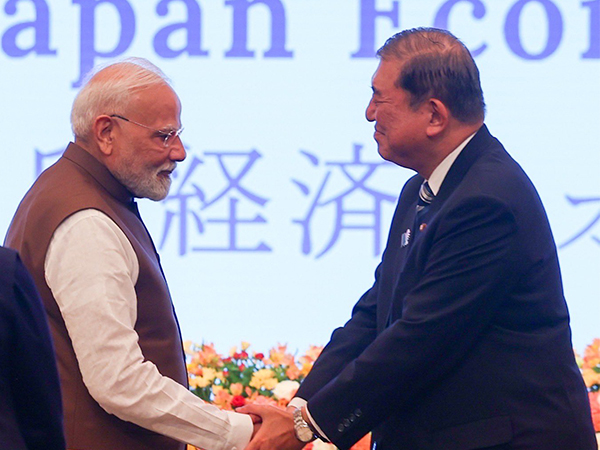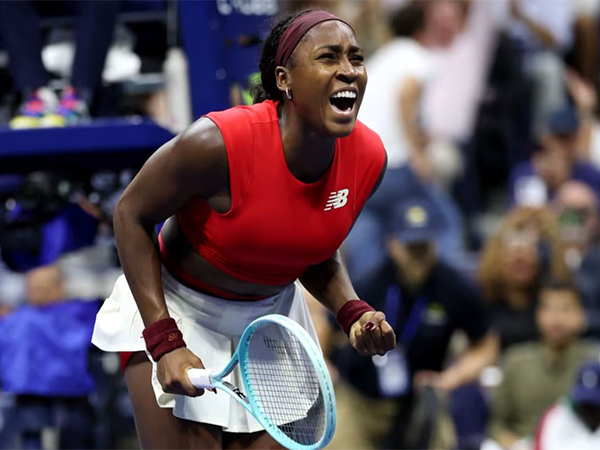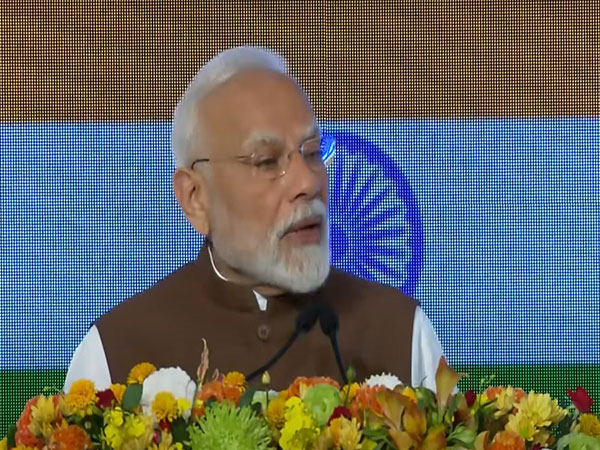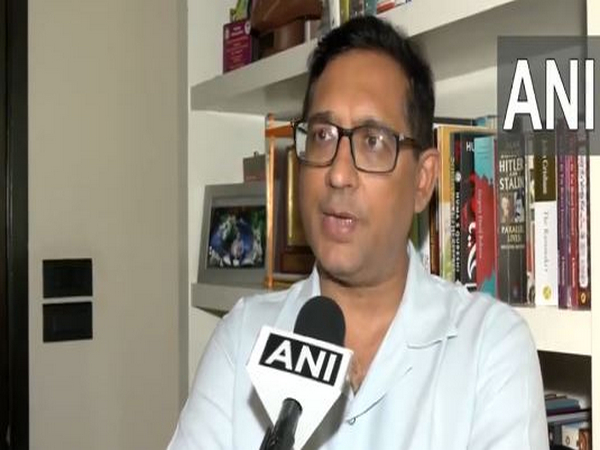
"More retired judges openly behaving like political activists," says Law Commission member Hitesh Jain
Aug 29, 2025
Mumbai (Maharashtra) [India], August 29 : Hitesh Jain, a member of the 23rd Law Commission of India, on Friday criticised retired Judges of the Supreme Court alleging that some of them were openly behavning like political activists. He also criticised from SC judge Justice Abhay S Oka, for defending the Opposition's Vice-Presidential candidate Justice Sudershan Reddy in a row over his verdict in the Salwa Judam case.
Sharing an X post, Hitesh Jain raised concerns over comments by Justices Abhay Oka, Madan B Lokur, S Muralidhar, and Sanjib Banerjee and alleged a "partisan" behaviour.
He wrote, "I recently read some interviews given by Justice Abhay Oka. I was not surprised to see that he was also a signatory to the statement issued by a group of former judges and self-proclaimed activists defending retired Justice Sudarshan Reddy."
"I am not, at this stage, commenting on why they chose to address that letter. What concerns me is the larger trend: more and more retired judges are openly behaving like political activists. From Justice Madan Lokur to Justice S Muralidhar, Justice Sanjib Banerjee, and now Justice Abhay Oka, their interventions increasingly resemble partisan posturing rather than a principled stand on judicial independence," he added.
The retired judges came in support of Justice B Sudershan Reddy, after Union Home Minister Amit Shah slammed the Opposition of nominating alleged "left wing" sympathiser as their candidate.
The July 2011 judgment, which Justice Reddy co-authored with Justice SS Nijjar, disbanded Salwa Judum in Bastar, Chhattisgarh, for being illegal and unconstitutional.
Further, Hitesh Jain accused the retired judges of being silent on "real issues" such as the state of the lower judiciary and the delays in appointing judges.
He said, "Judicial independence is not preserved through press conferences, interviews, or partisan letters. It is lived every single day in our district courts and magistrate courts, where the fate of millions of ordinary citizens is decided. These very judges, who now claim to be "custodians of democracy," remained conspicuously silent on the real issues: the state of the lower judiciary, delays in appointments, and the conditions under which justice is delivered to common citizens."
Hitesh Jain claimed a pattern in the comments made by the retired judges, saying they take up pending matters in the apex court and question the judicial elevations to frame a narrative around judicial independence.
He said that the retired judges have not presented "constructive solutions" to address the problems in the judiciary.
"Have you noticed the trend in their interviews and comments, whether it is Justice Lokur or now Justice Oka? They repeatedly take up a few pending matters in the Supreme Court or questions around judicial elevations, and then frame the narrative of judicial independence on that narrow basis. Yet they hardly ever speak of how pendency can be reduced, hearings expedited, or how justice can be made accessible for the common man, be it possession disputes, recovery of property, motor accident claims, or the plight of undertrials," he wrote.
"In the last ten years, have they come forward with any constructive solutions to address these larger issues facing the judiciary? Have they used their experience to solve the problems of the ordinary litigant? The record shows nothing beyond platitudes in speeches," the member of the Law Commission added.
As the Senior Advocate in the Supreme Court, Indira Jaising, questioned the elevation of Justice Vipul Pancholi to the apex court, Hitesh Jain said that such lawyers "style themselves as judicial activists".
He said, "We have some usual channels and a predictable list of lawyers like Indira Jaisingh, Prashant Bhushan, Sanjay Hegde, and a few others, who proudly style themselves as "judicial activists." Their routine is familiar: whenever a judgment or judicial elevation does not suit their preferences, they rush to the media, beating their chests and declaring that the Supreme Court is in decline or that democracy is in danger. This pattern has been visible for over a decade, amplified by a select judges' lobby and echoed in portals through sensational interviews and soundbites. Just yesterday, we saw Indira Jaisingh make bizarre remarks about "Hindu domination of the judiciary" and question why the prospective Chief Justice should hail from Gujarat as though such appointments were a crime."
"The reality is that this lobby has been crying wolf at every turn, not out of genuine concern for the judiciary, but to advance its own political agenda. It is important to expose this hypocrisy and send a clear message: they cannot bully the judiciary or use it as a shield to further partisan objectives. It is high time this lobby is called out," Hitesh Jain added.
Expressing disappointment in Justice Oka's stand, he called the judges a "politically motivated lobby" whose aim is to target Prime Minister Narendra Modi.
"In this context, it was disappointing to see Justice Oka join hands with political activists like Justice Lokur and Justice Muralidhar, who are no longer independent voices but part of a politically motivated lobby whose only agenda seems to be targeting Prime Minister Modi. Having said that, no one will disagree that a Prime Minister can be criticised, but that cannot be the sole and exclusive agenda. It is important to remove the mask from such activist judges," the X post read.
Earlier, Senior advocate and former Attorney General Mukul Rohatgi backed the stance of 56 retired judges who supported Union Home Minister Amit Shah in the controversy over his remarks on the Salwa Judum verdict.
Rohatgi said he found their position "more appropriate" than that of 18 retired judges who had opposed the Home Minister, stressing that once a judge enters politics, their past judgments can naturally be debated and criticised.
Speaking to ANI, Rohatgi remarked, "If any person enters a political arena, they are under public gaze, and their credentials are subject to debate. There is no gain in saying that the judgment of a judge rendered 20 years ago should not be criticised. Every judgment is open to criticism, including this one. The criticism is of the judgment, and the author of the judgment happens to be in a political arena; hence, obviously, people will talk about it. Why should the 18 judges be more sensitive than the judge himself? As a lawyer, I can say it was a controversial judgment. A politician should have thick skin and be able to face public criticism."

